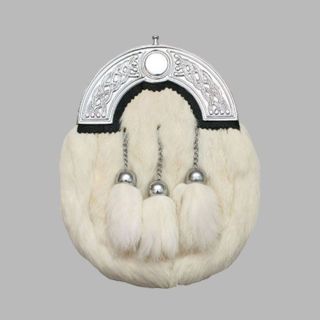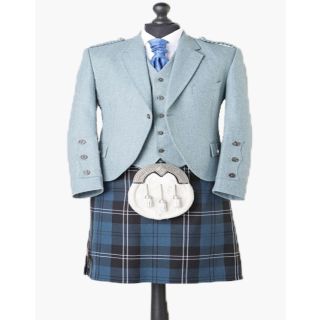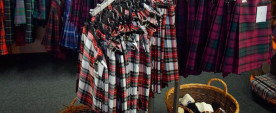The Scottish nation is fraught with many secrets. For example, few people know that it was the Scots, representatives of one of the most northern European nationalities, who for a long time were rightfully considered the highest nation in Europe. They had to lose this title after the First World War: small Scotland participated so actively in hostilities that its losses were recognized as the largest in the ratio of deaths to the country's population. None other than the tallest Scots went to war and never returned. These are not all the surprises of this nation, and to try to unravel them, it is worth paying attention to the Scots themselves.
Ethnic composition of the Scots
There are many different nationalities mixed in the Scottish nation:
- the Picts, the historical inhabitants of these territories;

Painting by William Hall
- the Irish, whose colonies were in Scotland;
- Britons and Angles;
 Portrayal of the Britons
Portrayal of the Britons
- Normans and other nationalities.
As a result of this mixture, the Scottish nation has now become exactly what it is today.
Highland and Lowland Scots
This division of the inhabitants of Scotland appeared quite a long time ago, but has not yet completely disappeared: even modern citizens of Scotland are divided into highlanders and lowlanders. Where did it come from and what is this difference?
- The inhabitants of the plains are predominantly descendants of a mixture of different races, the indigenous language of many of them being English. The main occupation of the lowland inhabitants has always been agriculture: their homes were located in river valleys, on the most fertile lands.
- The Highlanders are predominantly of Celtic origin, and it is in the Highland culture that the Gaelic language is still preserved. At the moment, all speakers of this language live in the mountainous regions of the country. The main occupations of the mountaineers were war and cattle breeding.
 Scottish Highlanders
Scottish Highlanders
To a large extent, these two types of Scots differed in self-government, mentality, and even attitude towards neighbors and legitimate authority on the throne.
Despite the fact that the population of Scotland is not so large (as of 2006, just over five million), it is a truly interesting and distinctive nation, with its own culture, worldview and characteristics.
With our Scottish Extremes trip going further into the depths of Scottish scarffery and extravagantly tartanry, be fascinated by the charm of the kilt and the appropriate extras.Explore the Highands and get to know more about Scottish culture and fall in love with the stunning landscapes of Scotland.From the folklore sporan to intricate kilt outfits wears, down to classy Scottish hats, being our client at Liberty Kilts will simply unveil the greatness you have in embracing Scottish heritage and fashion.This is a significant occasion that can bethe opportunity to wear all the accessories that are connected with courage and valor.












